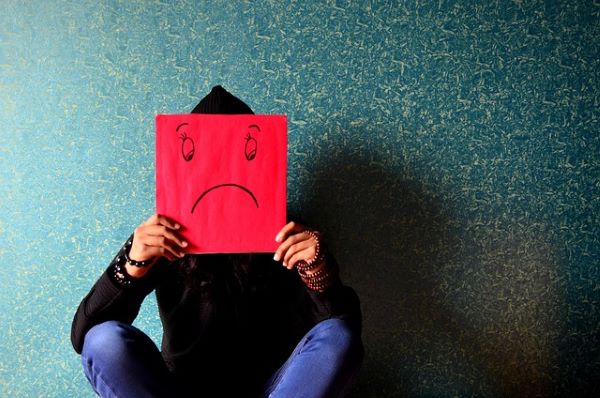Mental Health Crisis in Medical Colleges : The Hidden Epidemic
Medical students enter college with a dream: to heal, to serve, and to make a difference. But for far too many, that dream turns into a nightmare of relentless stress, humiliation, and emotional neglect Medical colleges are supposed to be temples of healing, shaping the next generation of doctors who will save lives. Yet, for many students, these campuses become battlegrounds for survival.
Last week, a second-year dental student at Sharda University died by suicide in Greater Noida. In her final note, she named six professors. Two have been arrested.
Tragic? Yes. Surprising? Sadly, no.
Between 2010 and 2019, 358 Indian medical students, residents, and doctors died by suicide — that’s roughly one life lost every 10 days. Nearly half of these deaths were linked to academic stress; one in five to harassment by faculty. (Source: International Journal of Social Psychiatry, 2022).
This isn’t just a statistic. It’s a mental health crisis — one that medical colleges are refusing to see.
The Silence that Kills: Why Mental Health Still Doesn’t Matter Enough in Medical Colleges
Medical colleges teach students about the heart, brain, and nervous system. But when it comes to the mental health of their own students, there’s a glaring blind spot.
An outdated mindset: Many professors believe “breaking students down” toughens them up for the real world.
No mental health infrastructure: Few institutions offer full-time counselors or confidential support systems.
Fear and stigma: Students fear being labeled “weak” if they seek help.
Silence over harassment: Reporting faculty misconduct often feels pointless — or even dangerous — for students.
Instead of being sanctuaries of learning, many medical colleges have become pressure cookers, leaving students anxious, exhausted, and unsupported.
Also Read: Now Get Free Mental Health and Emotional Health Support at HealthViews India
When Discipline Turns into Damage
A disturbing belief lingers in academic culture:
“Slaps build character. Humiliation is discipline. Toughness equals resilience.”
But here’s what it actually leads to:
- Public humiliation: Students scolded or mocked in front of peers and even patients.
- Moral policing: Intrusive, judgmental comments about how students dress or behave.
- Harassment & abuse: Homophobic slurs, sexist remarks, and degrading “jokes.”
One dentist put it bluntly:
“They taught us to drill teeth. But some professors belonged in places where people spend years trying to drill their way out.”
While there are wonderful, inspiring teachers who nurture and motivate, the damage caused by the toxic few leaves deep emotional wounds that can last a lifetime.
The Chilling Link Between Medical Education and Suicide
The numbers speak louder than words:
358 suicides in 9 years (2010–2019).
49.7% due to academic stress.
20.9% linked to harassment and abuse.
Each death is followed by the same pattern: public outrage, promises of reform — and then silence. Meanwhile, students continue to suffer in a system that equates cruelty with rigor.
The Change Medical Colleges Desperately Need
If medical colleges want to produce not just good doctors but healthy human beings, they need to confront this crisis head-on.
1. Mandatory Mental Health Counseling
Every college must hire trained counselors and create confidential, stigma-free spaces for students.
2. Real Accountability for Faculty
Professors need training in empathy and ethics. Harassment must have clear consequences.
3. Peer Support Networks
Alumni and senior students can be lifelines, offering mentorship and guidance.
4. Suicide Prevention Programs
Visible helplines, mental health screenings, and awareness campaigns should be as routine as anatomy lectures.
5. A Kinder Curriculum
Medical education should include emotional intelligence and communication — because healing isn’t just about treating symptoms, it’s about caring for people.
Why This Mental Health Crisis in Medical Colleges Cannot Be Ignored
Doctors are expected to be calm, compassionate, and resilient. But how can they embody those values if their training experience is rooted in fear and humiliation?
A mentally battered student often becomes a burnt-out doctor — one who is less empathetic, more error-prone, and vulnerable to leaving the profession altogether.
Worse, every suicide represents a life lost before it even began — a doctor who might have saved hundreds of others but never got the chance.
Why This Isn’t Just a Student Issue
A mentally exhausted medical student doesn’t just suffer alone.
- They graduate into doctors more prone to burnout.
- Their empathy and patience erode under constant pressure.
- Ultimately, patients suffer too — because an emotionally broken doctor can’t deliver the best care.
This isn’t just about protecting students — it’s about protecting the future of healthcare.
Breaking the Silence: A Collective Duty
The most dangerous phrase in academic culture is:
“It’s just how things are done.”
No, it’s not. And it shouldn’t be.
Medical colleges are not meant to mirror a broken culture — they are meant to challenge it. They are supposed to teach healing, not harm. They should protect their students, nurture them, and give them the tools to thrive.
Conclusion: From Silence to Change
The mental health crisis in medical colleges isn’t hidden. It’s in the numbers, the news reports, and the suicide notes that keep appearing.
But silence won’t solve it. Action will.
Because the real measure of a medical college isn’t how many doctors it produces — it’s how many it doesn’t break along the way.





